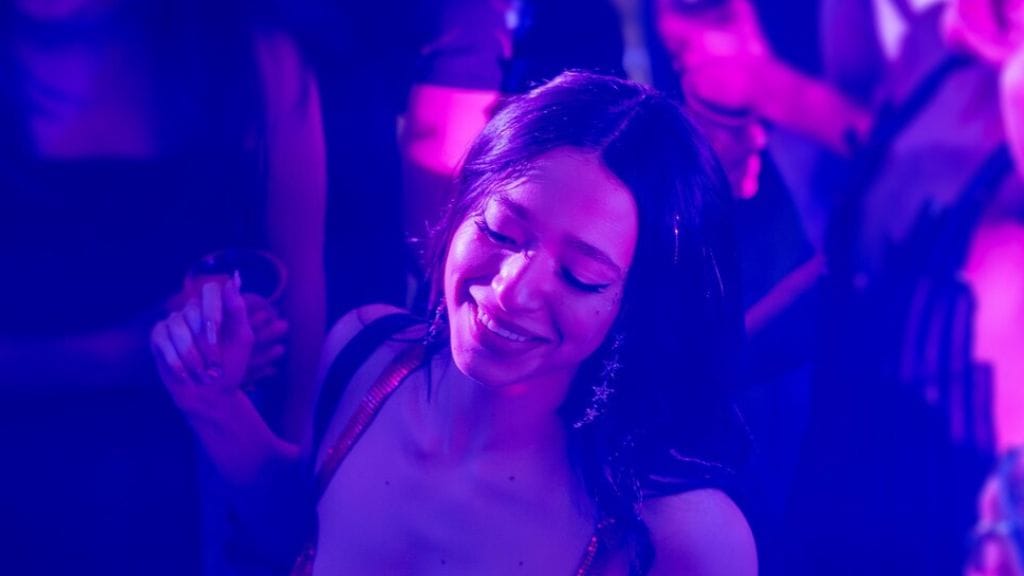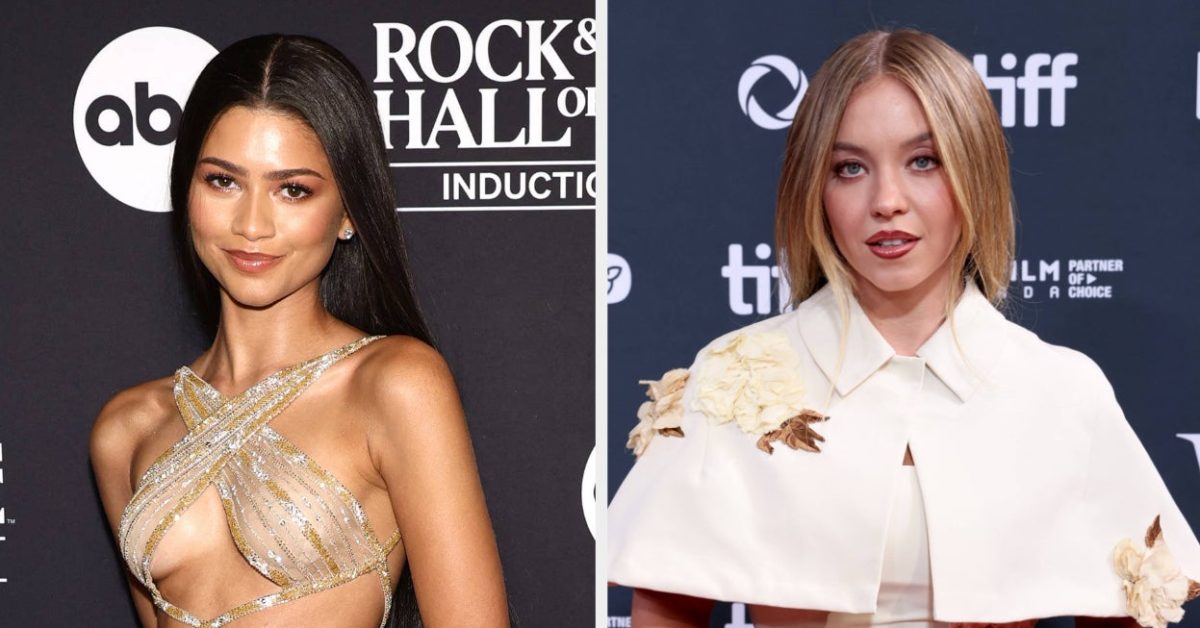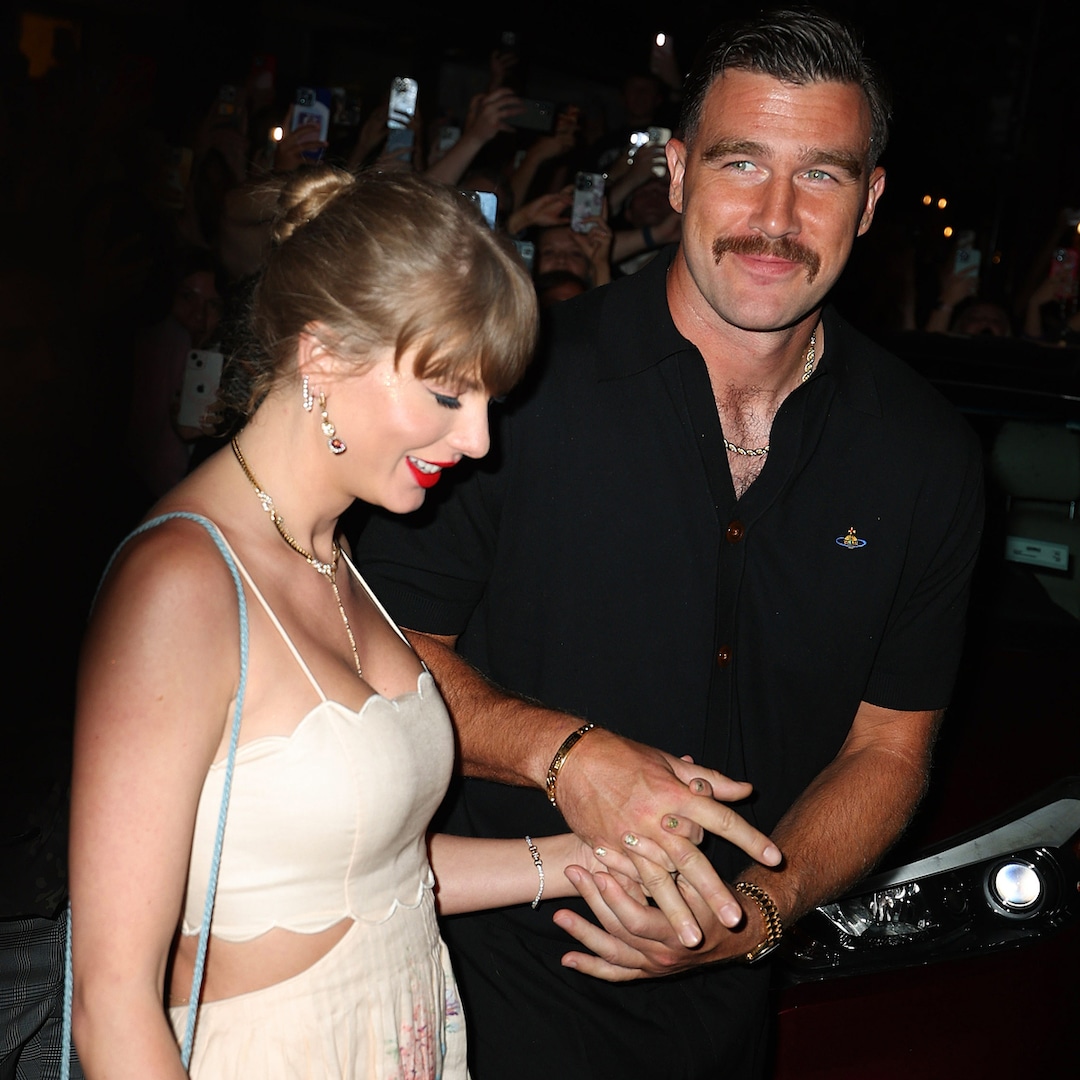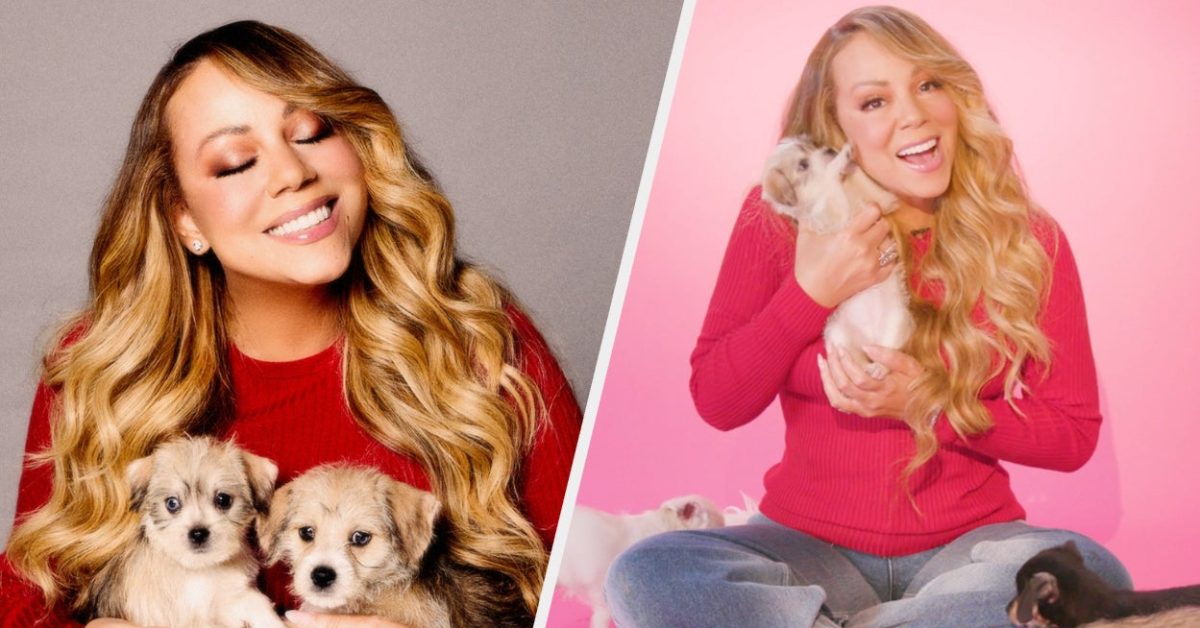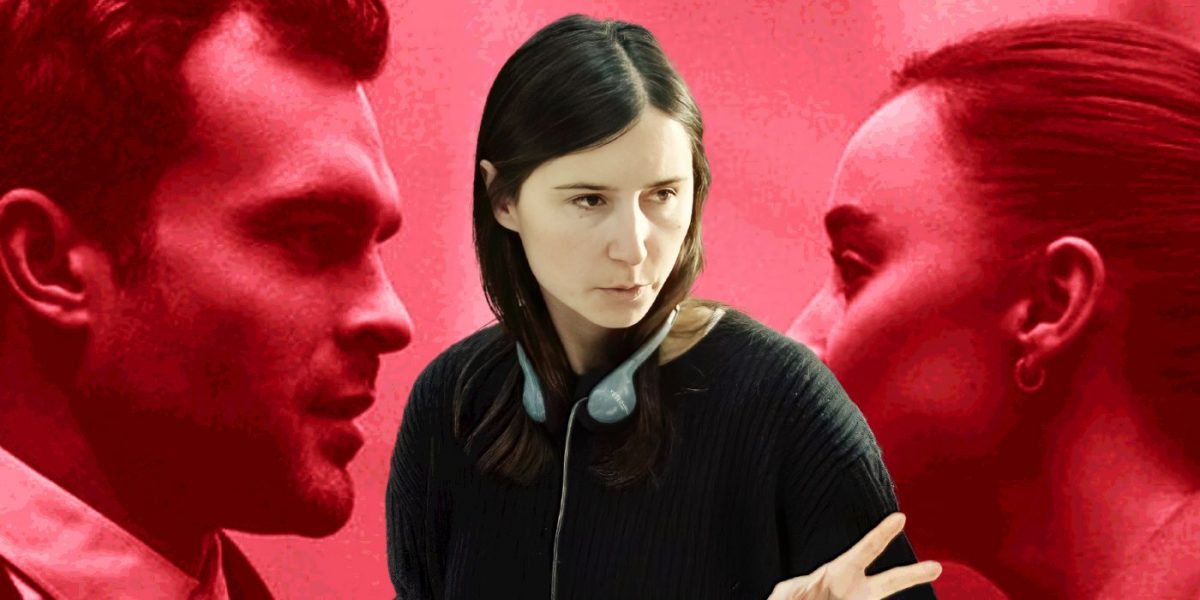
‘Fair Play’ Director on Importance of Intimate Scenes in Exploring Power Dynamic
Oct 6, 2023
The Big Picture
Writer-director Chloe Domont’s debut feature “Fair Play” generated a bidding war after its premiere at Sundance, drawing on her experiences in the writers’ room and director’s chair for HBO’s “Ballers.” The film, an erotic thriller starring Phoebe Dynevor and Alden Ehrenreich, delves into the power dynamics of a clandestine power couple working at the same New York investment firm. Domont discusses the personal nature of the script, the importance of intimate scenes in exploring the power dynamic, and how the editing process shaped the narrative of the film.
Writer-director Chloe Domont came out swinging for her debut feature, Fair Play, which sparked a bidding war after its premiere at this year’s Sundance Film Festival. After spending time in the writers’ room and sitting in the director’s chair for series like HBO’s Ballers, Domont was able to pull from her own experiences to finally pin down the perfect first feature in what’s now being heralded as an erotic thriller, likening back to the genre’s ‘80s reign with movies like Fatal Attraction.
Fair Play stars Bridgerton’s Phoebe Dynevor and Alden Ehrenreich (Solo: A Star Wars Story) as Emily and Luke, a clandestine power couple who work at the same New York investment firm. Both driven and passionate, they appear to have their lives in perfect balance, leading to a blissful engagement. From proposal to promotion, however, a surprising tip in the scales of their power dynamic suddenly shifts, and Emily and Luke’s in-sync relationship is tossed into Domont’s “pressure cooker thriller” and set to boil over.
While promoting the film, Domont spoke with Collider’s Steve Weintraub about finding the right story to tell for her directorial debut. She discusses the personal nature of the script, finding the right producers and financiers who understood the movie she was making, and the “incredibly rewarding” reception its world premiere received after the long, “painful journey” to getting it on screen. Domont also talks about the sexual nature of Fair Play, why the intimate scenes were important to the exploration of this power dynamic, and why the editing process could dramatically shift the movie’s narrative. Check out the full interview in the video above or the transcript below for all of this and more.
COLLIDER: You’re obviously doing a lot of speed dating right now, meeting a lot of reporters, talking about the film. Is it something you’re enjoying, or is there an element of Kubrick where you wish you could just let the movie stand and not talk about it?
CHLOE DOMONT: No, I’m definitely enjoying the process. I wish I got a little more sleep [laughs], but this is something that I’ve worked for and almost killed myself to get made. I’m excited that people want to talk about it.
Image via Netflix
This is a little bit of a jokey question, but it’s amazing to me that people still date their coworkers.
DOMONT: [Laughs] Yes, but you know what? It makes a lot of sense when you think about it because these are the people you’re around all the time, you’re developing bonds and relationships with, and in many ways, your colleagues, it’s like a marriage. So, I mean, it makes sense to me why so many people end up falling for people they work with.
Absolutely. How much did you debate what your first feature was gonna be in terms of the story you wanted to tell? Because there’s a lot of people that get one chance to make a movie, and I can only imagine what it’s like thinking about, “Is this the story that’s gonna be my debut?”
DOMONT: Totally, and I think I struggled with that for many years before I found this film and this story. I think that I was writing a lot of different things and searching, and I just kept going because whatever I was writing I didn’t think was good enough, or I didn’t think was timely enough, or I didn’t think was piercing enough. So I just kept searching. In the time that I was searching and writing, life was happening, and there were certain things in my life and certain experiences that I had that it just became clear that that’s what I wanted to base it off of. A lot of this film is deeply personal, and I took from some of my own experiences. That’s some of the reason why I made this film and certain dynamics that I was having.
One of the things about the film is that if you just examine it from the outside, it’s basically a two-location set-up. How much did you think about, “How can I tell this story while also being limited with my resources?” Was that in your writing process, were you thinking about that?
DOMONT: I wanted to create this pressure cooker thriller and this ticking time bomb, and I thought that what would add to that is if these characters are stuck in this toxic bubble—going from the apartment to the office, back to the apartment, back to the office—and the idea that there’s no escape from each other. Especially as things start to implode and unravel between them. For me, that’s what drew me to setting the film between those two spaces and creating two very different looks of claustrophobia.
Image via Netflix
One of the things that people might know is that you were one of the big, if not the biggest, sales at Sundance. I’m curious, after so much time making this, what was it like being in that whirlwind where all of a sudden, it’s just this huge success?
DOMONT: [Laughs] It was a blur, to be honest. Most of it was a blur, but it’s incredibly rewarding because I put everything into this film, and it was a painful journey to get to making this movie. This is the thing I set out to do, and there’s nothing more rewarding than, first of all, people just reacting the way that you want them to react, and asking the kinds of questions, the same kinds of questions that drove me to writing this film, and starting that kind of conversation, that buzz, and that debate. So I think for me, primarily, aside from the sale, it was really about the audience reaction, first and foremost. Then, of course, the sale was incredibly exciting and rewarding.
I love talking about the editing process because it’s where it all comes together. How did the film change in the editing room in ways you didn’t expect?
DOMONT: I think the editing was a lot of just really shaping this thing like a bullet. It was funny, my editor Franklin [Peterson], we had talked about like, at a certain point, we have to put a gun to every scene’s head and say, “Justify your existence,” to shape this film like a bullet. So, through that process, we cut some scenes. I think the biggest challenge of the editing process—both challenging and at the same time exciting—was this is a film that, if you dial a little bit more towards Emily, it completely changes how you think about Luke the next 30 minutes of the film, and if in one scene you dial a little bit towards him, a little bit too much towards him, it completely changes how you think about her. So, this was a very tricky film. And where my empathy goes or how I’m looking at the characters, or judging the characters, or empathizing with the characters is going to be completely different from how someone else is looking at it. That was, I think, the trickiest part, in just trying to do a temperature check with each of the characters and how you feel about them in any given moment, and just playing with that with a look, with a comment, with a hesitation. So, that’s more what we explored in the edit process.
Your film has a few intimate scenes. It feels like, over the last two decades, Hollywood has been afraid to show intimacy in movies. Did you find that people were resistant to a script that had intimate scenes?
DOMONT: Honestly, I just feel really lucky and grateful that I met producers and financiers right away who got this movie, who were behind my vision for it, who didn’t question, surprisingly. I thought that I would get some pushback on some of the sexual nature of it in some way, and I didn’t. These were people who just understood the movie that I was making, understood the importance of those scenes, and how it spoke to the power dynamic struggle that I was exploring. And it was just because I’d found the right people for the movie to make this with me.
Image via Netflix
There are very powerful scenes, some fun, some powerful. How much did you think about filming these near each other, or how much did you want to space them out in the shoot, or was it sort of just the schedule is the schedule?
DOMONT: I think that you try to do that, but ultimately the schedule is the schedule. I talked about it with my AD, and I said, “Can we try to schedule some of the lighter scenes up front and make our way into some of the darker scenes?” But the truth is, the film gets pretty intense pretty quickly, so there were very few light scenes to start with, you know? [Laughs] But that’s what everyone signed up for, so the actors were game for it, I was game for it. It’s like, “Let’s just dive in headfirst and just go for it.”
I know that you guys were able to do rehearsals, which is pretty unusual nowadays. What did you learn in the rehearsal process that possibly impacted the film or changed the script in an unexpected way?
DOMONT: Rehearsals are invaluable. I don’t know how anyone can make a movie and not rehearse. Even if you can’t put it into the budget, figure out how to rehearse on weekends. That’s what I preach because it just saves you so much time while shooting. You get to work out the kinks and bumps, and if the blocking doesn’t quite work, or an actor’s bumping on a line, or whatever. You have time to rewrite it, you can rework it with them. Also, we rehearsed with my DP [Menno Mans], so we were changing the shot list, we were finding better, more exciting was to shoot a scene. So, by the time we got to shooting, on the day we could just fly.
I can’t imagine not doing rehearsals, but you hear about all these movies and they’re just blocking and figuring it all out on set. It must add so much time to production.
DOMONT: I think that I wouldn’t be able to sleep the night before if I didn’t know exactly what I was doing that day. [Laughs] I don’t know how people do it. I mean, yeah, some people get off on that kind of spontaneity, but the thing is, something unexpected will always come up in filmmaking. It’s like, no matter how much you prepare, too, no matter how much you rehearse, something unexpected will always come up. I think that that’s the beauty of filmmaking. But for me, at least, when you’re prepared ahead of time, you know exactly what you’re doing coming in, then you can make those pivots very quickly because you’ve done all the work, and you’ve done all the prep.
I’ve read people call the film a “twisted, erotic thriller for grownups.” When you hear that, does it excite you? Do you agree with it? What’s your take on that?
DOMONT: For me, I set out to make a thriller about power dynamics within a relationship. It definitely has crossover to the erotic thriller genre, it has crossover to a psychological thriller genre, it has crossover to a relationship drama. But ultimately, our jobs as new filmmakers is to push genres and do something new with it and do something different. I never intended to make a traditional film that was staying within the confines of any one particular genre. For me, the intention here was always to use the genre, and twist it and manipulate it, to shine a lot on what I was trying to explore, in terms of the story and the themes, to show all the ways in which women are forced to play ugly to survive, to show the dangers of male inferiority, and using the genre to comment on that. But ultimately, people, whatever they want to take away from this film, they should. I think it’s a film that you can’t really put a label on or put in a box.
Image via Netflix
I 100% agree. I’m also so curious what it must be like with people walking out of a theater having seen this and hearing their conversations.
DOMONT: [Laughs] I mean, so far, with all the screenings we’ve done, it’s been incredibly exciting and buzzy. You see people shook, visibly shook by it. You see people kind of opening up. It was interesting, I actually had a screening last week where I walked outside the theater, and there was a group of men in their sixties standing in a circle, just opening up about the way that they were raised and talking about their marriages and their divorces. I’d never seen a group of men, especially in that age, feel comfortable enough to talk to each other, and I thought that was incredibly exciting. I’ve come out of many screenings and seen women talking, or couples converse, or men and women, but I’ve never seen a group of men. It felt like this movie unlocked something that they had been holding, and they felt okay to talk about, and I felt like that was incredibly rewarding.
Fair Play is available to stream on Netflix and playing in select theaters.
Publisher: Source link
Zendaya, Sydney Sweeney Talk Euphoria’s Delay
Zendaya, Sydney Sweeney Talk Euphoria's Delay To cut a long story short, Season 2 of the hit HBO show aired in 2022. Shortly afterward, the Daily Beast reported that insiders had alleged that the environment on set was "toxic." The…
Nov 16, 2024
Proof Travis Kelce Is Getting the Last Laugh on His Mustache Critics
“Otherwise, the men without beards would have been the ones fornicating,” the 37-year-old—who shares daughters Wyatt, 5, Elliotte, 3, and Bennett, 22 months with wife Kylie Kelce—continued. “I think this is how evolution works, Travis. Women are just attracted to…
Nov 16, 2024
Mariah Carey Kicks Off Holiday Season with Puppy Interview
Mariah Carey Kicks Off Holiday Season with Puppy Interview It's tiiiiiiiime!!! Forever dubbed the Queen of Christmas, we all know that Mariah Carey's power grows stronger with every day we get closer to the holiday. This year, we decided to…
Nov 15, 2024
Jennifer Lopez Makes First Onstage Appearance Amid Ben Affleck Divorce
Jennifer Lopez Gets Loud in Her First Onstage Appearance Amid Ben Affleck DivorceJennifer Lopez knows how to dance the night away in style. Nearly three months after the "Jenny From the Block" singer filed for divorce from ex Ben Affleck,…
Nov 15, 2024

